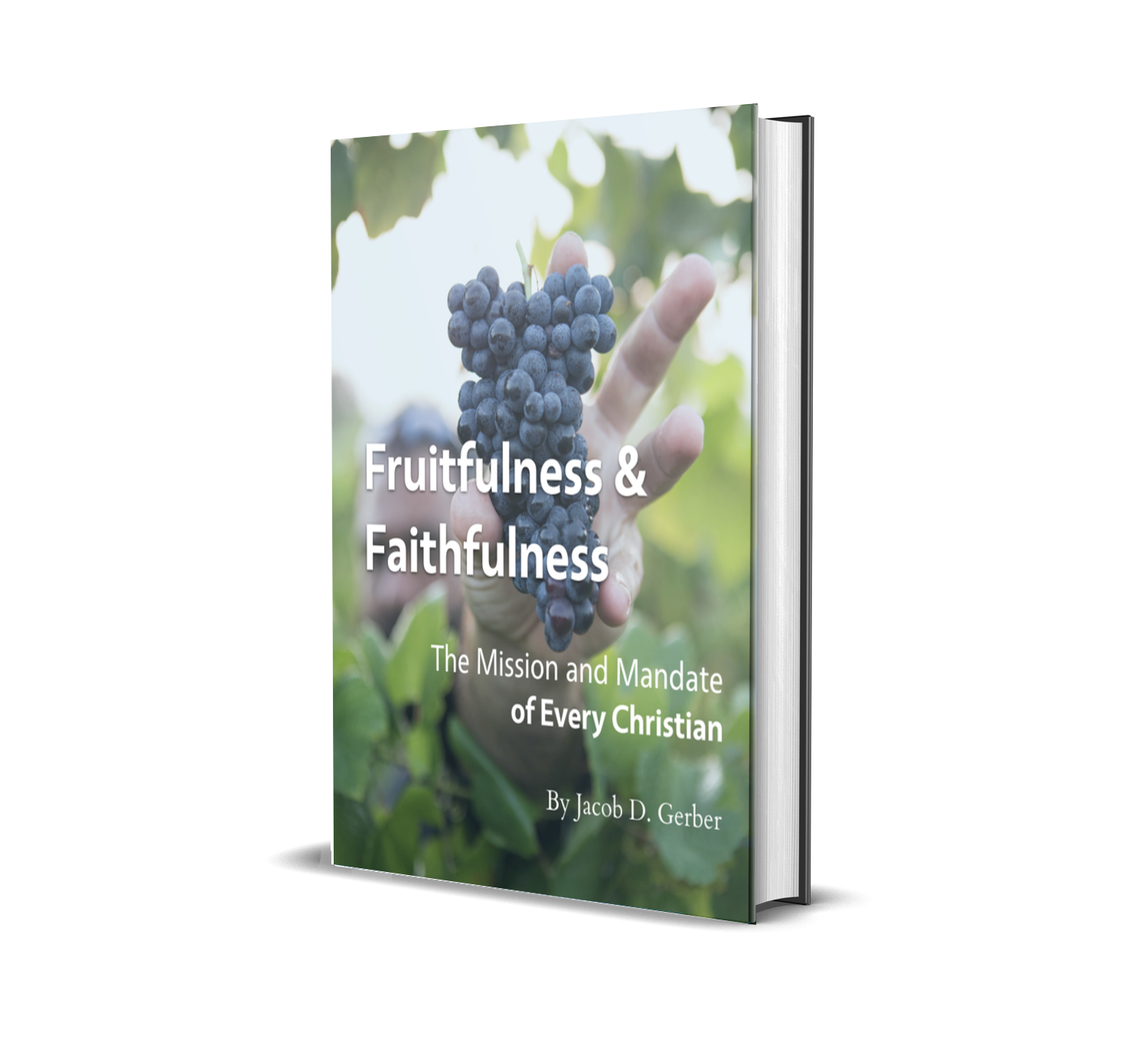God Has Not Called You to a Life of Stoic Singleness (1 Cor. 7:9)
In the beginning, God created man in his own image as male and female (Gen. 1:27). He created us as whole people with bodies, souls, minds, emotions, and desires—including sexual desires. When God surveyed these whole people he had created, he declared his work to be “very good” (Gen. 1:31).
Sin, of course, wrecked the goodness of God’s original design. Sin did not entirely abolish the goodness of God’s design altogether, but sin hijacked every part of our whole personhood away from loving God with all our heart, soul, mind, and strength, and away from loving our neighbor as ourselves.
So, the original sin that we inherit from Adam corrupts and decays our bodies toward sin, misery, and death. Original sin darkens our souls, so that we are dead and unresponsive toward God. Original sin hijacks the logic and reasoning of our minds, so that we convince ourselves that our sin is not only justifiable, but even good. Original sin twists our emotions, so that we rejoice at what should grieve us, and we become angry at what should bring us joy. Original sin disorders our desires so that we do not instinctively desire Jesus Christ, the Desire of all Nations, but instead we desire more sin, misery, and death.
And, original sin twists our sexual desires, so that we long for sexual gratification from people to whom we are not married.
How do we understand these twisted sexual desires? And, more importantly, what should we do with them? Has God called us to a life of Stoic singleness, where the best we can do is to grit our teeth and whiten our knuckles as we burn with desire?
Sinful Desires are Truly and Properly Sin
To start, we must acknowledge that any sinful desires we experience are truly and properly sin—even before we choose to act on them. The Westminster Confession of Faith is very helpful on this point:
This corruption of nature [i.e., original sin], during this life, doth remain in those that are regenerated; and although it be, through Christ, pardoned, and mortified; yet both itself, and all the motions thereof, are truly and properly sin. (WCF 6.5)
Every thought, every inclination, every desire, every pull, and every least flash of desire toward sin is truly and properly sin, regardless of whether we then make that sin more heinous by not only conceiving it in the heart, but allow that sin to break forth in our words and actions (WLC 151.3). Thus, we do not transgress God’s law only when we choose to act on such desires, but even by the motions of our original sin itself:
Every sin, both original and actual, being a transgression of the righteous law of God, and contrary thereunto, doth, in its own nature, bring guilt upon the sinner, whereby he is bound over to the wrath of God, and curse of the law, and so made subject to death, with all miseries spiritual, temporal, and eternal. (WCF 6.6)
Therefore, whenever and wherever we see or sense a motion of our hearts toward sin, we must repent and look to Jesus for forgiveness as we ask him to create in us a clean heart (Ps. 51:10). The Westminster Larger Catechism articulates this point well:
WLC Q. 76. What is repentance unto life?
A. Repentance unto life is a saving grace, wrought in the heart of a sinner by the Spirit and Word of God, whereby, out of the sight and sense, not only of the danger, but also of the filthiness and odiousness of his sins, and upon the apprehension of God’s mercy in Christ to such as are penitent, he so grieves for and hates his sins, as that he turns from them all to God, purposing and endeavoring constantly to walk with him in all the ways of new obedience.
Unless we start here, we will never understand the greatness of our sin. More than that, we will never understand the greater glory of our Savior Jesus Christ who died to bear our guilt on the cross, and who clothes with his own righteousness all those who truly repent from their sins and seek his salvation through faith.
The Burning Life of Stoic Singleness
The fact that sinful, sexual desires are themselves “truly and properly sin” that will “bring guilt upon the sinner” is why Paul insists that it is better to marry than to burn with sexual desires:
[8] To the unmarried and the widows I say that it is good for them to remain single, as I am. [9] But if they cannot exercise self-control, they should marry. For it is better to marry than to burn with passion. (1 Cor. 7:8–9)
Notice that the expression “self-control” does not have to do merely with behavior, but with desires: “For it is better to marry than to burn with passion.” This is a very different kind of “self-control” than what the Greek Stoics taught.
For the Greek Stoics, “self-control” (enkrateia) meant only control over one’s behavior in the face of strong desires. The early church recognized, however, that self-control in Christianity meant something more than that—although certainly not less than that. Even Clement of Alexandria (150–215 AD), a man who was often criticized for importing too much Greek philosophy into his Christian theology, saw clearly that the Greek Stoics taught a fundamentally different kind of self-control than what the New Testament Scriptures teach:
The human ideal of self-control (enkrateia), I mean the one found among the Greek philosophers, consists in struggling against lust (epithumia), and in not yielding to it so as to manifest its deeds. But among us self-control means not to experience lust at all. Our aim is not merely to be self-controlled while still experiencing lust in the heart, but rather to be self-controlled even over lust itself. But this kind of self-control is attained only by the grace of God. (Clement of Alexandria, “Miscellanies, Book 3,” in Marriage and Sexuality in Early Christianity, p. 77. H/T Jonathan Tomes.)
Christian self-control, then, is not a superhuman exercise of discipline to reign in our raging, sinful desires. Rather, self-control is a supernatural gift of the Holy Spirit. This is true in a general sense, since “self-control” (enkrateia) is a fruit of the Holy Spirit (Gal. 5:23). In regard to sexual desires, Paul teaches that self-control over desires is a gift of grace given to some, but not all: “I wish that all were as I myself am. But each has his own gift from God, one of one kind and one of another” (1 Cor. 7:7).
God has not called you, therefore, to a life of Stoic singleness, where your desires must rage in you while you insist upon remaining single. If God has given you the gift of self-control, you will not burn with sexual desire. This is what older theologians called the “gift of continency”—that is, the gift of “contained” desires.
Marriage for those Without the Gift of Continency
For those without the supernatural, gracious gift of continency from the Holy Spirit, God has called them not to remain single, but to seek out marriage. Originally, God created our sexual desires for marriage, and marriage remains the only godly place for us to feel and to act on our sexual desires.
In fact, Paul insists that abstaining from sexual intimacy in marriage is not a sign of greater self-control, but it actually weakens our self-control:
[2] But because of the temptation to sexual immorality, each man should have his own wife and each woman her own husband. [3] The husband should give to his wife her conjugal rights, and likewise the wife to her husband. [4] For the wife does not have authority over her own body, but the husband does. Likewise the husband does not have authority over his own body, but the wife does. [5] Do not deprive one another, except perhaps by agreement for a limited time, that you may devote yourselves to prayer; but then come together again, so that Satan may not tempt you because of your lack of self-control [akrasian (= akrateia)]. (1 Cor. 7:2–5)
We must deal with our desires soberly, not foolishly. God created powerful sexual desires in order to build his kingdom on earth by binding together marriages and propagating more image-bearers through ordinary human reproduction. God wants husbands and wives to engage in sexual intimacy—he created sexual intimacy and called it “very good.”
This is why the Westminster Larger Catechism considers marriage for those without the supernatural gift of continency to be one of the duties required by the seventh commandment, and the undue delay of marriage to be one of the sins forbidden by the seventh commandment:
WLC Q. 138. What are the duties required in the seventh commandment?
A. The duties required in the seventh commandment are, chastity in body, mind, affections, words, and behavior; and the preservation of it in ourselves and others; watchfulness over the eyes and all the senses; temperance, keeping of chaste company, modesty in apparel; marriage by those that have not the gift of continency, conjugal love, and cohabitation; diligent labor in our callings; shunning all occasions of uncleanness, and resisting temptations thereunto.WLC Q. 139. What are the sins forbidden in the seventh commandment?
A. The sins forbidden in the seventh commandment, besides the neglect of the duties required, are, adultery, fornication, rape, incest, sodomy, and all unnatural lusts; all unclean imaginations, thoughts, purposes, and affections; all corrupt or filthy communications, or listening thereunto; wanton looks, impudent or light behavior, immodest apparel; prohibiting of lawful, and dispensing with unlawful marriages; allowing, tolerating, keeping of stews, and resorting to them; entangling vows of single life, undue delay of marriage; having more wives or husbands than one at the same time; unjust divorce, or desertion; idleness, gluttony, drunkenness, unchaste company; lascivious songs, books, pictures, dancings, stage plays; and all other provocations to, or acts of uncleanness, either in ourselves or others.
Certainly, there are due (i.e., “good”) reasons to delay marriage, in cases where someone does not have a godly, willing candidate for marriage. In such cases, we must pray for God’s mercy, protection, and forgiveness from sin, as well as that he will create in us clean hearts that desire to love God and to love our neighbor as God intends. Also, we should pray that God will provide us with a spouse, according to his will.
But, 1 Corinthians 7:9 teaches us that we have our priorities backwards if we prioritize undue, selfish, personal pursuits above our purity by putting marriage on the backburner while we burn with sexual desire. This article is not speaking to those who long to be married, but have nevertheless been unable to find a spouse. Rather, this article is speaking to those who can be married, but choose to put it off for undue reasons.
So, if you long to be married but have not been able to do so yet, you desire a good thing. Continue entrusting yourself to the one who judges justly and ask that he will provide for every need of yours in Christ Jesus.
The point of this article, then, is simply that God has not called anyone to choose a life of Stoic singleness. Either he will give you the gift of containing your desires, or you should seek out marriage, as he provides. Yes, marriage means giving up freedom and opportunity; however, if we rightly prioritize our purity, then we must take seriously the gift that marriage gives to those whose desires are not contained. It is better to marry, than to burn with (sinful) passion.
God has called all of us to seek godly control over our sexuality, in one way or another.
FREE eBook: Fruitfulness and Faithfulness: God’s Mission and Mandate of Every Christian
Grow in God’s Plan for Your Fruitfulness and Faithfulness

Invest Your Life Well
Discover God’s breathtaking vision for the fruitfulness of his people.
Learn how to live fruitfully and faithfully in the kingdom of Jesus.
Download the free eBook now.
Get the eBook
Bonus: You’ll also get a discipleship assessment tool to evaluate areas for you to grow in fruitfulness and faithfulness.




